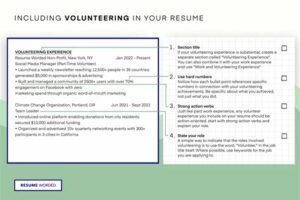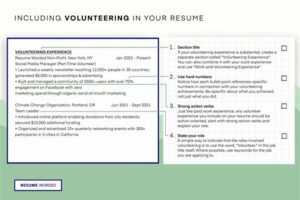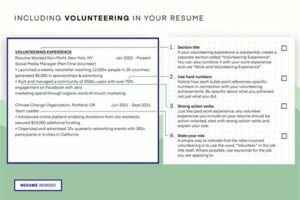Table of Contents
Learn how to participate in volunteer work and make a difference in your community. Discover the steps to find volunteer opportunities, choose the right organization, and make a meaningful impact through volunteerism. Gain valuable insights on the benefits of volunteering and how it can enhance your personal growth while positively impacting others. Start your journey towards making a difference today!
Are you looking for a meaningful way to give back to your community and make a positive impact on the lives of others? If so, volunteering is an excellent opportunity for you! Whether you are passionate about environmental conservation, working with children, or supporting the elderly, there are countless organizations and causes that would greatly benefit from your time and skills. Participating in volunteer work not only allows you to contribute to a cause you care about, but it can also provide you with valuable experiences and personal growth. In this article, we will explore how you can get involved in volunteer work and make a difference in the world.
Introduction
Volunteer work not only benefits the community but also provides individuals with a sense of fulfillment and personal growth. Engaging in volunteer activities allows you to contribute your skills, time, and energy towards making a positive impact in society. If you’re looking to participate in volunteer work and make a difference, this article will guide you through the process in a professional manner.
Identify Your Interests
Before diving into volunteer work, it’s essential to identify your interests and passions. Reflect on the causes or issues that ignite your enthusiasm. Are you passionate about animal welfare, environmental conservation, education, or supporting marginalized communities? By identifying your interests, you can find volunteer opportunities that align with your values, which will ultimately enhance your experience and commitment.
Research Local Organizations
Once you have identified your interests, research local organizations that focus on those areas. Use online resources, such as community directories, volunteer websites, and social media platforms, to explore the various organizations operating in your area. Look for reputable organizations with a clear mission and positive reviews from previous volunteers.
Assess Your Skills and Availability
Consider your skills and availability when choosing a volunteer opportunity. Assess what you can offer and the time commitment you can realistically make. Some organizations may require specific skills or expertise, while others may have flexible schedules. By aligning your skills and availability with the organization’s requirements, you’ll ensure a more productive and fulfilling volunteer experience.
Contact the Organization
Once you have identified a potential organization, reach out to them through their preferred contact method. It could be via email, phone, or an online volunteer registration form. Introduce yourself, express your interest in volunteering, and inquire about their application process. Be professional and concise in your communication and provide any necessary information they may require.
Attend Orientation or Training Sessions
Most organizations conduct orientation or training sessions for new volunteers. These sessions are designed to familiarize you with the organization’s mission, values, and expectations. Attend these sessions attentively, take notes, and ask any questions you may have. This will prepare you for your volunteer role and help you understand how your efforts contribute to the organization’s overall goals.
Get Involved in Volunteer Activities
Now that you have completed the necessary preparations, it’s time to get actively involved in volunteer activities. Follow the instructions and guidelines provided by the organization’s coordinators or supervisors. Show up on time, be reliable, and give your best effort. Remember that volunteering is a commitment, so strive to fulfill your responsibilities consistently.
Build Relationships with Fellow Volunteers
A significant aspect of volunteer work is the opportunity to connect and build relationships with fellow volunteers. Engage in conversations, support one another, and share experiences. Building a network within the volunteering community can provide you with valuable insights, inspiration, and potential future opportunities.
Reflect on Your Experience
Periodically take the time to reflect on your volunteer experience. Consider the impact you are making, the skills you are gaining, and the personal growth you are experiencing. Reflecting on your journey will help you appreciate the value of your efforts and motivate you to continue making a difference.
Share Your Story
Lastly, don’t shy away from sharing your volunteer story with others. Talk about your experiences, the organization you’re involved with, and the impact volunteering has had on your life. By sharing your story, you inspire others to get involved, create awareness about the causes you support, and encourage a culture of giving back.
Conclusion
Participating in volunteer work is a fulfilling and impactful way to contribute to society. By following these steps – identifying your interests, researching local organizations, assessing your skills and availability, contacting the organization, attending orientation or training sessions, getting involved in volunteer activities, building relationships with fellow volunteers, reflecting on your experience, and sharing your story – you can actively participate in volunteer work and make a positive difference in the world.
Finding the Right Volunteer Opportunity
Finding the right volunteer opportunity involves researching local charities and organizations that align with your interests and values. Consider the type of work you are passionate about, such as working with children, animals, or the environment. Additionally, explore whether you can commit to a long-term project or prefer shorter-term volunteer opportunities.
Contacting the Organization
Once you have identified a potential organization to volunteer with, reach out to them to express your interest. This may involve sending an email or making a phone call. Introduce yourself, explain why you are interested in volunteering with them, and inquire about any specific requirements or application processes they may have.
Completing Application and Background Checks
Many volunteer organizations require individuals to fill out an application form to gather necessary information. This could include details about your background, skills, and availability. Some organizations may also request a background check to ensure the safety of the populations they serve.
Attending Orientation and Training Sessions
Before beginning your volunteer work, most organizations hold orientation and training sessions to familiarize you with their mission, policies, and procedures. These sessions are designed to ensure that volunteers understand their responsibilities, guidelines for interacting with clients or participants, and any necessary safety protocols.
Contributing Your Skills and Expertise
Once you have completed the necessary training, it is time to actively contribute your skills and expertise to the organization. Whether it’s teaching a class, assisting with administrative tasks, or providing support to individuals in need, your unique talents can make a significant impact on the organization and the community they serve.
Communicating Effectively with Staff and Fellow Volunteers
Maintaining open and effective communication with the organization’s staff and fellow volunteers is crucial. Respect the chain of command and follow any procedures for reporting concerns or issues. Additionally, collaborate with other volunteers to ensure a harmonious and efficient work environment.
Showing Commitment and Reliability
Volunteering requires a commitment to the organization and the people they serve. Be reliable by showing up on time for your volunteer shifts or projects. If you are unable to attend, provide advance notice and try to find a replacement if possible. Your dedication will be noticed and appreciated by the organization and the community.
Reflecting on Your Volunteer Experience
After completing your volunteer work, take the time to reflect on your experience. Evaluate the impact you made, assess what you learned, and consider how you can further contribute in the future. Reflecting on your volunteer work helps you grow both personally and professionally while helping you identify ways to continuously improve your efforts.
In order to participate in volunteer work, it is essential to follow a few key steps and guidelines. By approaching this opportunity with professionalism and a dedicated mindset, individuals can make a positive impact in their communities and contribute to meaningful causes. Below are some important points to consider when participating in volunteer work:
1. Research and identify relevant organizations:
- Take the time to research and identify organizations that align with your interests and values.
- Consider the type of volunteer work you would like to engage in, such as working with children, animals, or environmental conservation.
- Ensure that the organization is reputable and has a good track record in terms of their mission and impact.
2. Contact the organization:
- Reach out to the chosen organization through their website, email, or phone.
- Express your interest in volunteering and provide information about your skills, experience, and availability.
- Ask any questions you may have regarding the volunteering process, responsibilities, and expectations.
3. Attend an orientation or training session:
- Many organizations require volunteers to attend an orientation or training session.
- This session provides important information about the organization’s mission, policies, and procedures.
- It is an opportunity to learn about the specific roles and responsibilities you will undertake as a volunteer.
4. Respect and adhere to guidelines:
- Once you start volunteering, it is crucial to respect the organization’s guidelines and policies.
- Follow instructions provided by the organization’s staff and supervisors.
- Understand and maintain the confidentiality of any sensitive information you may come across during your volunteer work.
5. Be punctual and reliable:
- Show your commitment to the organization by being punctual and reliable.
- Arrive on time for your volunteering shifts and fulfill your agreed-upon responsibilities.
- If you are unable to attend a scheduled shift, communicate with the organization in advance and find a suitable replacement if necessary.
6. Maintain professionalism:
- While volunteering, it is important to maintain a professional demeanor at all times.
- Treat fellow volunteers, staff, and the individuals you interact with respect and courtesy.
- Adhere to appropriate dress codes and maintain personal hygiene.
7. Reflect on your experience:
- Take the time to reflect on your volunteer work and the impact you have made.
- Consider the skills and knowledge you have gained through this experience.
- Think about how you can further contribute or continue volunteering in the future.
By following these steps and approaching volunteer work with a professional voice and tone, individuals can maximize their impact and make a real difference in their communities. Remember, volunteering is not only a way to give back, but also an opportunity for personal growth and development.
Thank you for taking the time to visit our blog and learn about how to participate in volunteer work. We hope that this article has provided you with valuable insights and guidance on how to make a difference in your community.
Volunteering is not only a selfless act but also a fulfilling experience that allows you to give back to those in need. By participating in volunteer work, you have the opportunity to make a positive impact on individuals, organizations, and society as a whole. Whether you choose to volunteer your time at a local charity, mentor a student, or assist in environmental conservation efforts, your contribution matters.
Now that you have learned about the various ways to get involved in volunteer work, it is essential to take action. Start by identifying causes or organizations that align with your interests and values. This will ensure that you are truly passionate about the work you will be doing, making the experience more enjoyable and meaningful. Research local opportunities and reach out to organizations to inquire about their volunteer programs.
Transitioning from the intention to participate in volunteer work to actually committing your time can sometimes be challenging. However, it is important to remember that every effort counts, no matter how small. If you are unable to commit to long-term volunteering, consider short-term projects or one-time events. This allows you to contribute while still managing your other responsibilities. Additionally, don’t hesitate to reach out to friends, family, or colleagues who may be interested in joining you in your volunteer endeavors. Working together not only strengthens your impact but also creates a sense of camaraderie.
In conclusion, participating in volunteer work is an excellent way to make a positive difference in the world around you. By following the steps outlined in this article and taking action, you can become an active volunteer and contribute to causes that matter to you. Remember, even the smallest acts of kindness can have a significant impact, so don’t underestimate the power of your efforts. We encourage you to get involved and experience the rewards of volunteering firsthand. Together, we can create a better future for all.
Thank you once again for visiting our blog, and we hope you found the information provided helpful. Stay tuned for more articles on various topics related to making a positive impact in our society. If you have any questions or would like to share your own volunteering experiences, feel free to leave a comment below. Happy volunteering!
.
How To Participate In Volunteer Work – People Also Ask
1. Why should I consider volunteering?
Volunteering offers numerous benefits, such as gaining valuable experience, developing new skills, meeting new people, and making a positive impact on your community or a cause you care about. It can also boost your self-confidence and give you a sense of purpose.
2. How can I find volunteer opportunities?
There are several ways to find volunteer opportunities:
- Check with local non-profit organizations or community centers.
- Search online platforms dedicated to connecting volunteers with organizations in need.
- Contact religious institutions, schools, or hospitals, as they often have volunteer programs.
- Reach out to your friends, family, or colleagues for recommendations.
3. What skills do I need to volunteer?
The skills needed for volunteering vary depending on the type of work you’ll be doing. While some positions may require specific skills or qualifications, many volunteer opportunities only require a willingness to help and a positive attitude. However, having good communication, teamwork, and organizational skills can be beneficial in most volunteer roles.
4. Can I volunteer if I have limited time availability?
Absolutely! Many organizations offer flexible volunteer schedules to accommodate individuals with limited time availability. You can inquire about part-time or short-term volunteer opportunities that match your schedule. Additionally, virtual volunteering has become increasingly popular, allowing you to contribute remotely at your convenience.
5. Are there any age restrictions for volunteering?
While some volunteer positions may have age restrictions due to safety concerns or specific requirements, there are usually opportunities available for individuals of all ages. Non-profit organizations often have volunteer programs tailored to different age groups, including children, teenagers, adults, and seniors. Make sure to inquire about age requirements when exploring volunteer opportunities.
6. How can I make the most out of my volunteer experience?
To make the most out of your volunteer experience:
- Choose a cause or organization that aligns with your interests and values.
- Set clear goals and expectations for what you hope to achieve through volunteering.
- Communicate openly with the organization about your skills, availability, and preferences.
- Be reliable and committed to your volunteering commitments.
- Take the opportunity to learn and grow from your experiences.
Remember, participating in volunteer work is an enriching and rewarding experience. By giving your time and skills, you can contribute to positive change and make a difference in the lives of others.






